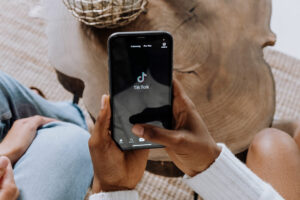Proposed Philippine TikTok ban needs basis — experts

By Miguel Hanz L. Antivola, Reporter
SUFFICIENT evidence is needed for the Philippines to join other countries looking to ban the use of short-form video platform TikTok due to alleged surveillance concerns, experts said.
The proposal to ban the use of the platform among public officials is indicative of “broader geopolitical tensions and our own state agencies wanting to show they’re falling in line with allies,” Jonathan C. Ong, disinformation researcher at the University of Massachusetts Amherst, said in a message to BusinessWorld.
“There is little evidence that Chinese state intelligence has actually relied on TikTok data rather than through their more traditional intelligence gathering strategies,” he added.
Solid proof is needed that data collected from TikTok are being used to monitor the public, Ronald B. Gustilo, national campaigner for Digital Pinoys, likewise said in a Viber message.
“[Then], the government is duty bound and has every right to protect the people and the government from foreign espionage,” Mr. Gustilo said.
“While these allegations may be due to the ongoing tension between Philippines and China, claims against any platform should be substantiated before making any drastic decision,” he added.
The government has formed a dedicated task force to assess whether public officials should be prohibited from using TikTok, a National Security Council (NSC) official said on Tuesday.
“The proposal to ban TikTok is simply for the security sector because many, many countries in the world have already banned TikTok in government devices,” Jonathan E. Malaya, NSC assistant director general, told reporters at the sidelines of a security forum.
“We are just waiting for the results of the threat assessment, which we will then submit to the National Security Adviser.”
The possibility of a ban was first raised in September, with officials citing data security issues.
Earlier this month, Nepal said it would ban Chinese-owned TikTok, adding that social harmony and goodwill were being disturbed by “misuse” of the popular video app and there was rising demand to control it, Reuters reported.
TikTok, owned by Chinese tech company ByteDance Ltd., has already been either partially or completely banned by other countries, with many citing security concerns.
Nepal’s neighbor India banned TikTok along with dozens of other apps by Chinese developers in June 2020, saying that they could compromise national security and integrity.
Another South Asian country, Pakistan, has banned the app at least four times over what the country’s government terms its “immoral and indecent” content.
TikTok last week said user data from the Philippines are stored in Singapore, Malaysia, and the United States.
“TikTok does not store user data in China, has not shared Philippine user data with the Chinese government, and would not even if asked,” it said in a statement last week.
“If an employee were required to access user data to perform a function specifically tied to their role (such as debugging, troubleshooting, and performance monitoring to provide an optimal user experience), logged and limited access to that data would only be granted subject to strict controls and safeguards, and adherence to the highest of approval protocols.”
The app is not headquartered and available in mainland China, even as ByteDance was founded by Chinese entrepreneurs, TikTok added, noting that the company’s ownership is split among global institutional investors (about 60%), employees (20%), and Zhang Yiming, the company’s founder (20%).
FOCUS SHOULD BE ON PROVEN LAPSES INSTEAD
For his part, Mr. Ong said there should instead be increased attention towards proven cases of cybersecurity lapses versus speculations over a platform.
“I think citizens should question the unevenness in which our political leaders are fearmongering about data privacy rather than addressing the major social media platforms like Facebook, or even Viber, or study vulnerabilities within our own Filipino corporations’ mobile apps where there are documented leaks of our data,” he said.
“We’re a country with great many experiences of government website hacking and leaking of our citizens’ personal information… so we should always be proactive about data privacy and identifying vulnerabilities,” Mr. Ong added.
Last month, the Department of Information and Communications Technology signed a commitment with ByteDance, Meta, and Google to share knowledge, insights, and technology to improve national cybersecurity.
Sam Jacoba, founding president of the National Association of Data Protection Officers of the Philippines, noted the need to follow up on the commitment signing “not through motherhood statements, but with concrete actions and plans.”
“Go beyond the paper commitment and let these big data gatherers fully comply with the Data Privacy Act,” Mr. Jacoba said. “Penalize them if they do not comply. Give a deadline (six months), then have regular reviews and checkpoints.” — with Reuters




